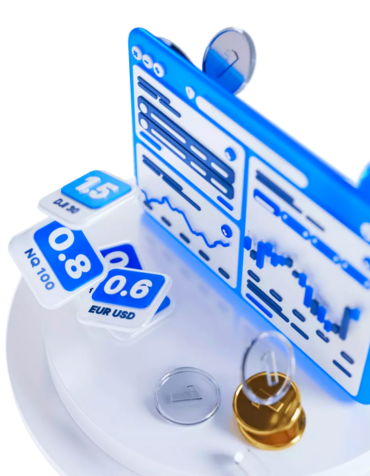We round up the best brokers that we believe offer best value for forex traders.





Trading the RWFZAR forex pair involves buying or selling it in the foreign exchange (forex) market. Here are the basic steps to trade RWFZAR:
To trade any forex pair, including RWFZAR, you'll need to open an account with a reputable forex broker. Ensure that the broker offers access to this specific RWFZAR pair.
Deposit funds into your forex trading account. The amount you deposit will determine the size of your trading positions.
Before making any trades, perform a thorough analysis of the RWFZAR pair. This analysis typically involves fundamental analysis (economic data, interest rates, geopolitical events) and technical analysis (price charts, indicators) to determine your trading strategy.
Most brokers offer trading platforms that allow you to execute trades. Familiarize yourself with the platform's interface and tools.
Choose whether you want to buy (long) or sell (short) the RWFZAR pair based on your analysis. Enter the trade order on your trading platform, specifying the amount (lot size) you wish to trade.
Executes the trade immediately at the current market price.
Sets a specific price at which you want your trade to be executed.
Sets a price at which your trade will be triggered if the market moves in a certain direction.
To manage risk, consider setting stop-loss orders to limit potential losses and take-profit orders to lock in profits at a certain price level.
Once your trade is executed, monitor the RWFZAR pair's price movement. Keep an eye on news and events that may impact the exchange rate.
When you achieve your trading objectives, either manually close the trade or wait for your predetermined take-profit or stop-loss levels to be reached.
After closing your trade, assess the outcome. Review your trading strategy and learn from both successful and unsuccessful trades to improve your skills.
Always practice proper risk management. Never risk more than you can afford to lose, and consider using leverage cautiously if available.
One strategy is called the breakout strategy. This strategy focuses on taking advantage of significant price movements after a period of consolidation or range-bound trading. So, what you want to do is keep an eye on the RWFZAR pair and look for a prolonged period of consolidation or sideways movement. Once you've identified this, it's important to pinpoint key support and resistance levels within this range. When the price finally breaks above a strong resistance level, that might be a good time to consider opening a long position. Just make sure to set your take profit level at a predetermined target based on technical analysis or previous price movements. And don't forget about risk management! It's always a good idea to implement techniques like setting stop-loss orders below important support levels.
Another strategy worth mentioning is the carry trade strategy. This one involves taking advantage of interest rate differentials between two currencies. In the case of RWFZAR trading, you'll want to research and compare interest rates set by both the Central Bank of Rwanda and South African Reserve Bank. If Rwanda has higher interest rates than South Africa, it might be wise to go long on RWF while shorting ZAR at the same time. The idea here is to hold this position over an extended period so you can earn positive swaps or rollover interest from your broker.
Last but not least, we have the technical analysis strategy. This approach relies on analyzing historical price patterns, indicators, and chart formations in order to make informed trading decisions for RWFZAR trading specifically. You can use various tools like moving averages, oscillators (like MACD or RSI), trend lines, etc., in order to identify potential entry and exit points. Look out for convergence/divergence signals or overbought/oversold conditions as well as chart patterns like triangles or head and shoulders. It's always a good idea to combine different indicators and price action analysis techniques to confirm signals before executing trades. And of course, don't forget about risk management! Make sure to set stop-loss orders to limit potential losses.